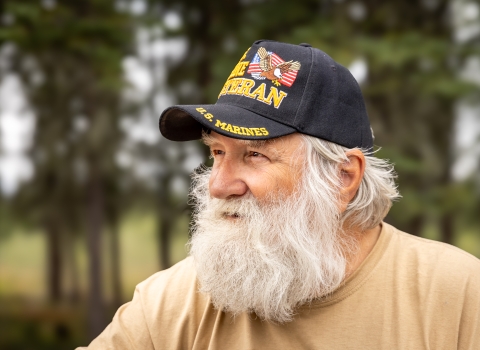Coregonines are some of the most valuable commercially harvested fish species in Lake Huron. Historically, the majority of commercial coregonine catches in Lake Huron were comprised of both Cisco (Coregonus artedi) and Lake Whitefish (Coregonus clupeaformis). However, coregonine densities are down across the lake due to a wide variety of reasons. Although Cisco are still present in small numbers in the North Channel, Georgian Bay, and Northern Lake Huron, they have been largely extirpated from the main basin of Lake Huron. Overexploitation, invasive species invasive species
An invasive species is any plant or animal that has spread or been introduced into a new area where they are, or could, cause harm to the environment, economy, or human, animal, or plant health. Their unwelcome presence can destroy ecosystems and cost millions of dollars.
Learn more about invasive species , and habitat degradation all contributed to the extirpation of Cisco from the main basin.
Given the economic and ecological importance of coregonines to Lake Huron, a group of Federal (US and Canadian), State, Provincial, and Tribal fishery biologists that participate in the Lake Huron Technical Committee (LHTC) launched a Coregonine Working Group (CWG) to address factors influencing coregonine restoration throughout Lake Huron. This group was formed last May, and activities were launched in a virtual meeting in mid-June with 18 members to discuss coregonine projects. The CWG is excited to formalize a cross-government collaboration to tackle the coregonine issues facing Lake Huron.
The CWG is equivalent to a standing committee and will conduct assignments and evaluations related to restoration and advancement of coregonine science in Lake Huron, as requested by the LHTC. The working group will provide coregonine related updates and reports to the LHTC at each meeting as well as organize and address any relevant action items or other assigned charges. Also, the CWG serves as a resource for the LHTC on research that increases understanding of coregonine recruitment dynamics, impairments for production, and potential restoration and enhancement activities. The CWG will maintain and report out on the Cisco Stocking Evaluation Plan and will develop and compile information on coregonine indicators derived from the Lake Huron Fish Community Objectives for report-out in the Lake Huron State of the Lake report.
Jose Bonilla-Gomez of the USFWS-Alpena FWCO is serving as the first chair of the new CWG. The chair will consult with the LHTC to establish clear management objectives, timelines, and product reporting formats. Upcoming meetings will discuss projects for 2023.




